23 celebrity moms who opened up about having postpartum depression after their kids were born
Yvette Manes

- Postpartum depression, like many other mental health issues, is often stigmatized.
- Many celebrities have opened up about their difficult experiences with postpartum.
- Princess Diana, Cardi B, and Chrissy Teigen are some of many stars who have publicly shared their experiences with postpartum.
- Visit Insider's homepage for more stories.
Many individuals who are preparing to give birth spend the entirety of their pregnancy painting an idyllic portrait of the first few weeks at home with their new baby. But even if everything else goes as planned, there's no way to predict how you will feel physically and emotionally after childbirth.
Because those who have just given birth often feel an intense pressure to be perfect, and mental health issues have long been stigmatized, it's not uncommon for those experiencing postpartum depression (PPD) symptoms to avoid seeking treatment — or doubt that they're actually suffering.
Thankfully, there are individuals who have a platform and are willing to share their own PPD experiences in an attempt to destigmatize the disorder and encourage more individuals to confide in their healthcare providers.
Here are some celebrities who've broken the silence about their postpartum depression.
Read the original article on InsiderCardi B said she thought she was going to be able to avoid postpartum depression.
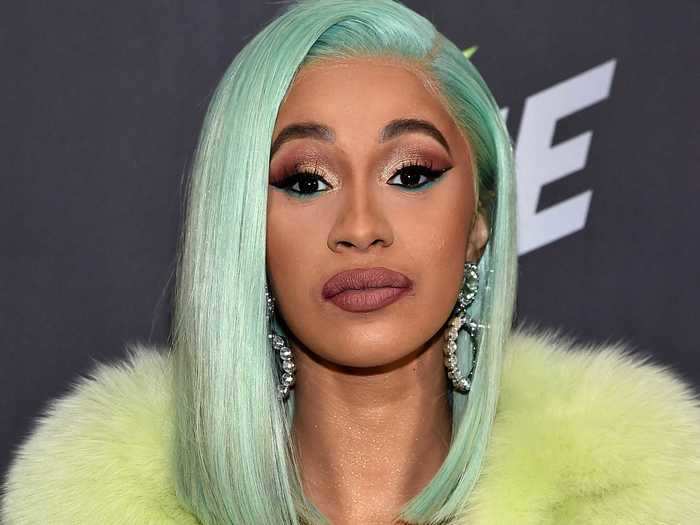
Rapper Cardi B, who gave birth to her first child in 2018, opened up about her experience with postpartum depression in a recent interview with Harper's Bazaar in 2019.
"I thought I was going to avoid [postpartum depression]," she told the publication. "When I gave birth, the doctor told me about postpartum, and I was like, 'Well, I'm doing good right now, I don't think that's going to happen.' But out of nowhere, the world was heavy on my shoulders."
She said she began feeling better a few months after her daughter was born.
Read More:
Amy Davidson said PPD "hit me hard."
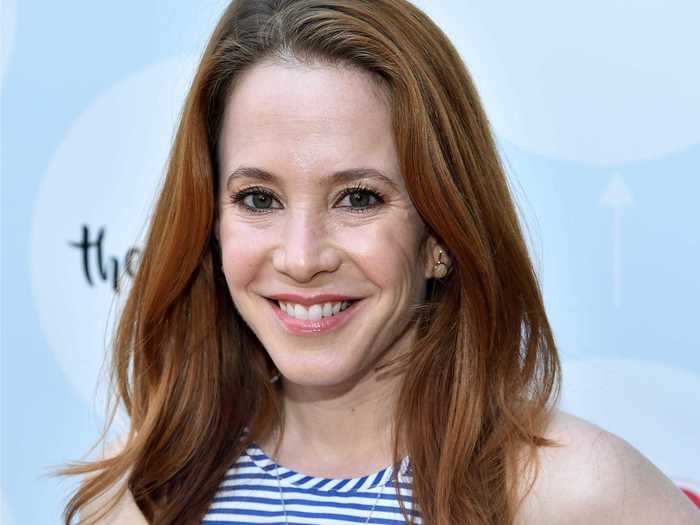
The "8 Simple Rules" actress and blogger wrote about her experience with postpartum depression after having her son Lennox in 2016 in a blog for People.
"The first month, I just couldn't stop crying," she explained. "Of course, I knew about postpartum depression and I hoped that it wouldn't affect me, but it did. It hit me hard. Those first four weeks were so incredibly challenging. I was sad and it didn't make sense, and that made me more sad."
Lisa Rinna said she silently suffered from postpartum depression.
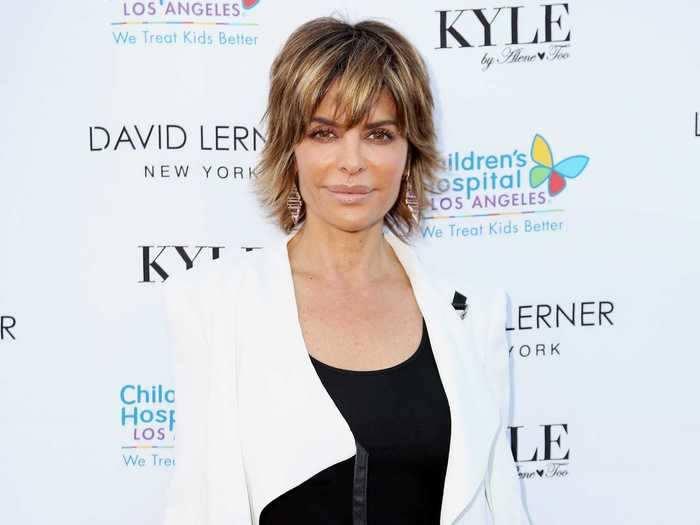
The actress opened up about her experiences with PPD to HLN's Dr. Drew.
"After having my first daughter Delilah, I had severe postpartum depression," she said. "I kept it a secret. I didn't say a word to anybody in the world. [My husband] thought I was just nuts. He had no idea what was going on and I was so hopeless and felt so lost."
Rinna said it took 10 months to talk to her husband about her feelings of worthlessness and low self-esteem.
"I suffered silently and I don't want any woman to ever have to do that again. You have to talk about out," she said.
Carnie Wilson said she experienced postpartum hallucinations.
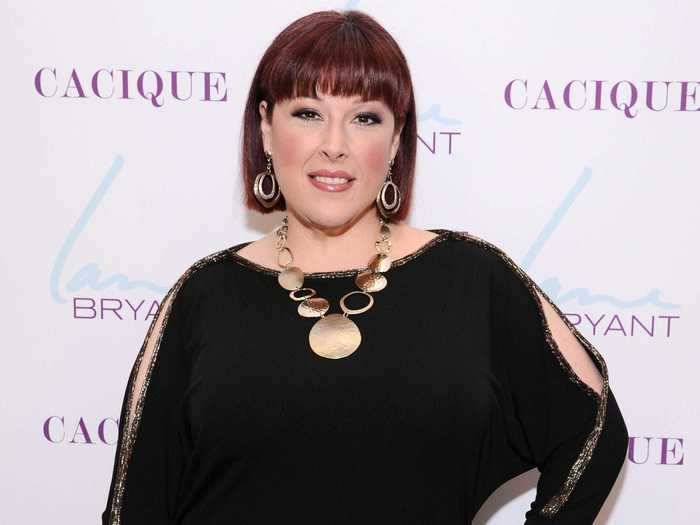
In the documentary, "When the Bough Breaks," the singer discusses postpartum hallucinations in 2005, the day after having her daughter Lola via C-section.
"I started hallucinating," she wrote. "I looked over at Lola from across the hospital room, and this voice was like, 'I'm the devil. I'm the devil, and I'm gonna kill you.' "
According to the New York Post, Wilson had a milder case of PPD in 2009 after giving birth to her second daughter, Luciana.
Gwyneth Paltrow said PPD made her feel "like a zombie."
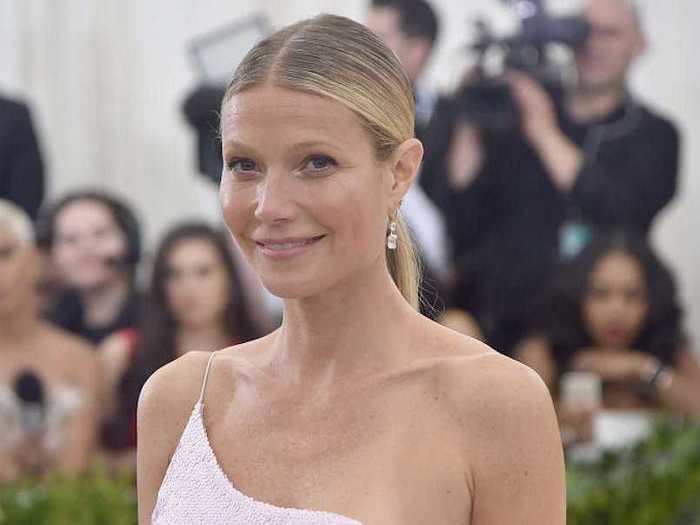
In a 2011 interview with Good Housekeeping, Paltrow revealed that in 2006, just days after her son Moses was born, she started to experience symptoms of postpartum depression.
"I felt like a zombie," she explained. "I couldn't access my heart. I couldn't access my emotions. I couldn't connect. It was terrible. It was the exact opposite of what had happened when Apple was born. With her, I was on cloud nine. I couldn't believe it wasn't the same [after Moses was born]. I just thought it meant I was a terrible mother and a terrible person."
The actress said she helped to treat her postpartum depression with therapy and exercise.
Marie Osmond wrote about her postpartum experience in a memoir.
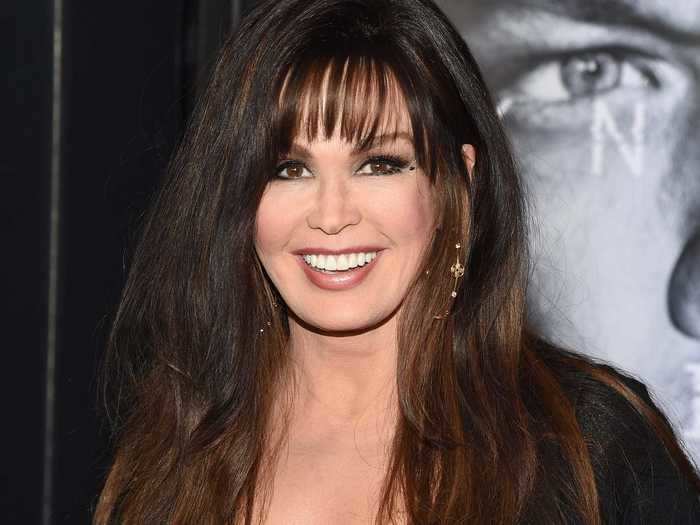
After having her youngest son, Matthew, the singer said she fell into a deep depression. She wrote about her experience in her memoir, "Behind the Smile: My Journey out of Postpartum Depression."
In an interview with the Daily Mail, Osmond discussed that difficult time period.
"I'd had the baby blues before, but this was different," she said. "I remember walking down the stairs and putting Matthew in the arms of the nanny. 'I can't stay here,' I told her. 'There is something wrong, really wrong with me. I have to leave until I figure it out.'"
Princess Diana said part of her postpartum depression included feeling "very low."
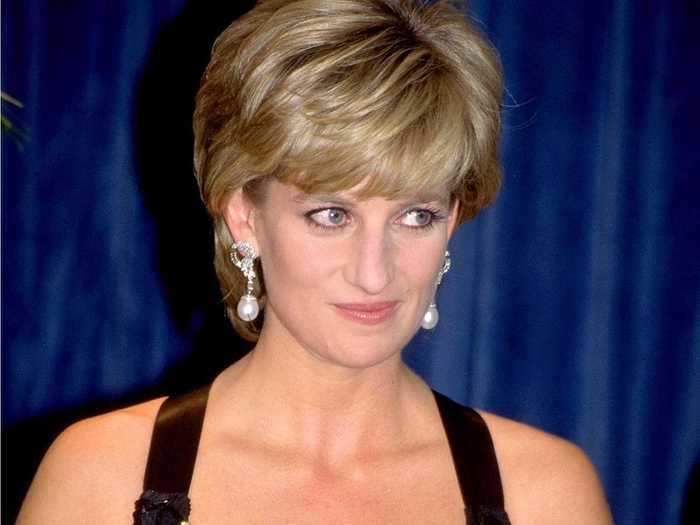
In a 1995 interview with Martin Bashir for the BBC show "Panorama," Diana revealed that after a difficult pregnancy, she'd suffered PPD.
"Then I was unwell with postnatal depression, which no one ever discusses, postnatal depression, you have to read about it afterwards, and that in itself was a bit of a difficult time," she said. "You'd wake up in the morning feeling you didn't want to get out of bed, you felt misunderstood, and just very, very low in yourself."
Kendra Wilkinson said she was able to make it through postpartum depression twice.
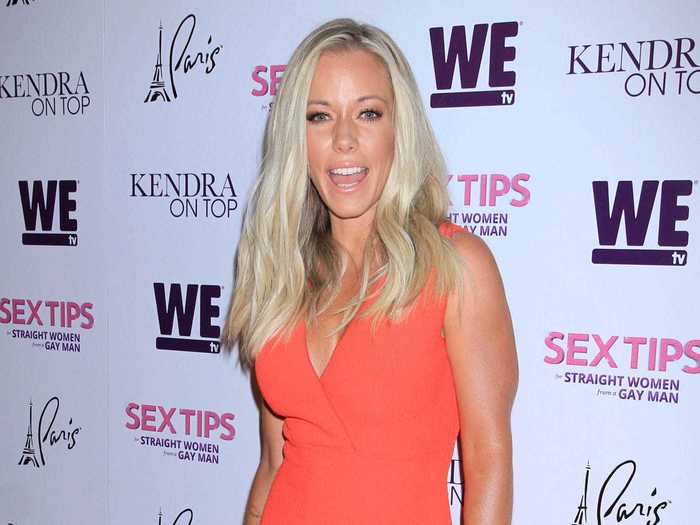
After battling PPD following the birth of both of her children, the reality star said she isn't planning to have any more biological children.
In a January 2017 interview with E! News, Kendra Wilkinson said, "If we were to agree to [have more kids], we would agree to adopt. I had postpartum after little Hank, and then I was dealing with chaos after Alijah with postpartum, so I had pretty bad experiences right after having each kid. But I got through it, and I appreciate it all."
Florence Henderson said she struggled with guilt surrounding her postpartum depression.
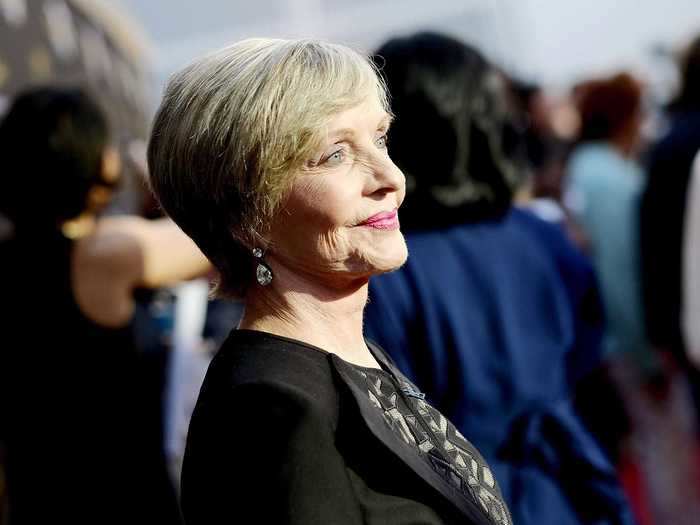
In her 2011 memoir titled "Life Is Not a Stage: From Broadway Baby to a Lovely Lady and Beyond," "The Brady Bunch" actress, Florence Henderson discussed her struggles with PPD.
"When you're depressed with a new baby, everybody tells you that you should be so happy and should feel so good," she wrote. "[My husband] Ira, too, felt bad about what I was going through, but he added to the chorus. 'You have so much to be happy about.' So add guilt to the list, a horrible guilt that I was not happy and joyful when I should have been. I would see other mothers with babies who were on top of it, and it made me feel worse, totally inferior."
Henderson passed away in 2016 at age 82.
Lena Headey said motherhood has been "tricky."
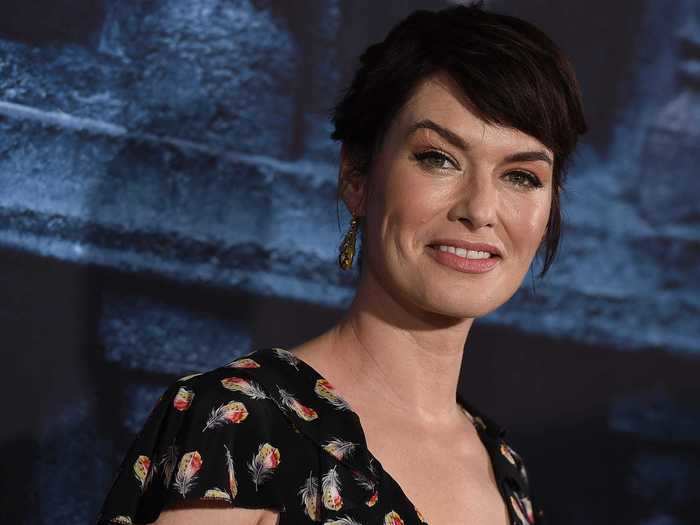
In an interview with Net-A-Porter's digital magazine, The EDIT, the "Game of Thrones" actress revealed that she struggled with PPD following the birth of her son Wylie in 2010.
"I was postnatally depressed but I didn't know it," she said. "I saw a doctor for the medical check, and I just burst into tears. She said I was postnatally depressed and I went, 'Am I? Why is that?' I saw a great guy and he sorted me out, but I did the first year [on 'Game of Thrones'] in that space, figuring out motherhood and going through a weird time personally. It was tricky."
Alanis Morissette said she experienced postpartum depression more than once.
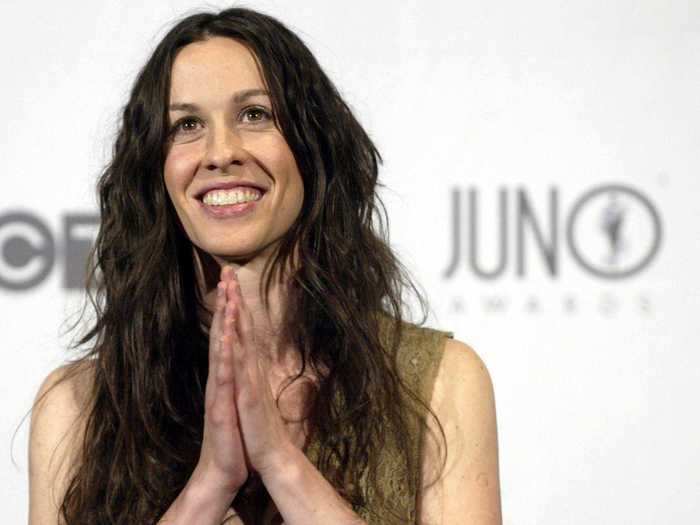
After her first bout with PPD in 2010, musician Alanis Morissette was no stranger to the symptoms after her daughter, Onyx was born in 2016.
In September 2017, she revealed to People that she was still experiencing PPD, 14 months after giving birth.
"As a kid, I imagined having children and being with an amazing partner," she explained. "This is a whole other wrench I didn't anticipate."
Melissa Rycroft said she didn't realize she was experiencing PPD until she talked about it with her partner.
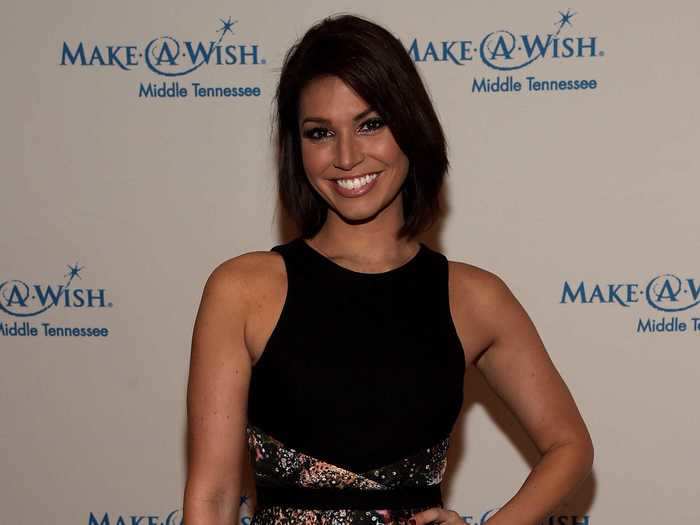
The television co-host told The Bump that thought she had a bad case of the baby blues following the birth of her daughter, Ava, in 2011.
It wasn't until speaking to her husband that she realized it could be PPD.
"I thought women with postpartum depression wanted to hurt their babies. But for me, it had nothing to do with Ava," she said. "I had this big emptiness that you shouldn't have right after you have a baby. I was like, I don't want to seem like I'm not happy — it's just that there's something chemically wrong. I would get frustrated and angry really easily."
Courteney Cox spoke about her experience with delayed postpartum depression.
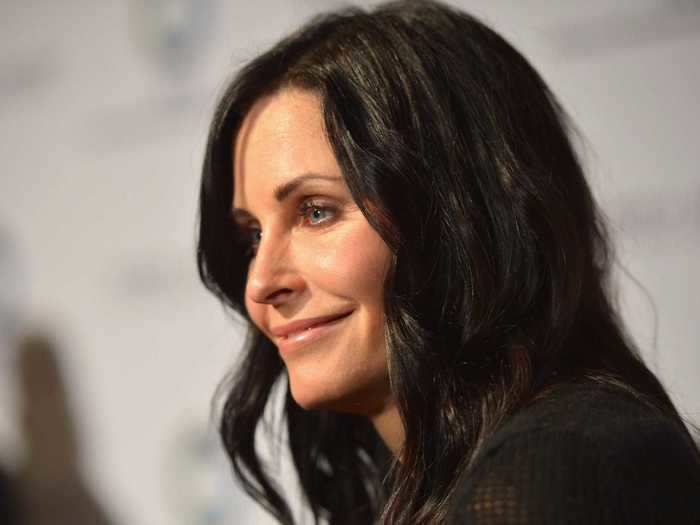
Describing it as a delayed case of postpartum depression in a 2005 USA Today interview, the "Friends" alum explained that she went through a really hard time when her daughter, Coco, turned 6 months old.
"I couldn't sleep," she said. "My heart was racing. And I got really depressed. I went to the doctor and found out my hormones had been pummeled."
People reported that Cox's doctors prescribed the hormone progesterone and that she turned to her friends Jennifer Aniston and Brooke Shields for support.
Sarah Michelle Gellar spoke about making it through PPD.
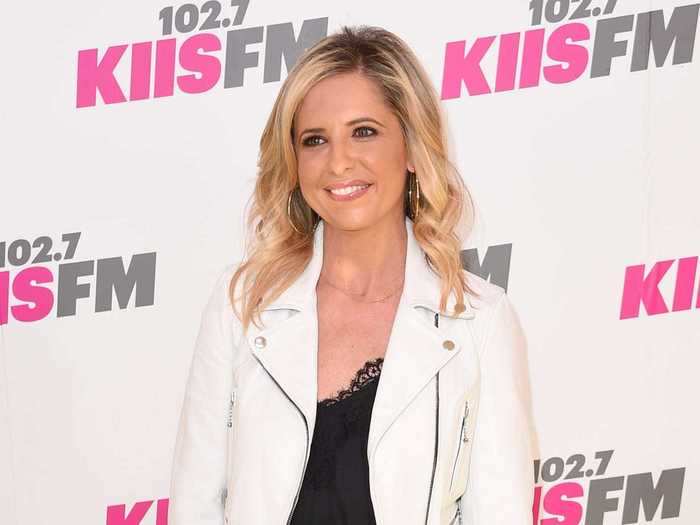
In May 2017, the "Buffy the Vampire Slayer" star took to Instagram to share that she suffered from postpartum depression after giving birth to her daughter, Charlotte in 2009.
"Having kids is wonderful, and life-changing, and rarely what you're prepared for," Sarah Michelle Gellar wrote, "I love my children more than anything in the world. But like a lot of women, I too struggled with postpartum depression after my first baby was born. I got help and made it through, and every day since has been the best gift I could ever have asked for.
Amanda Peet said she struggled with PPD after the birth of her first daughter.
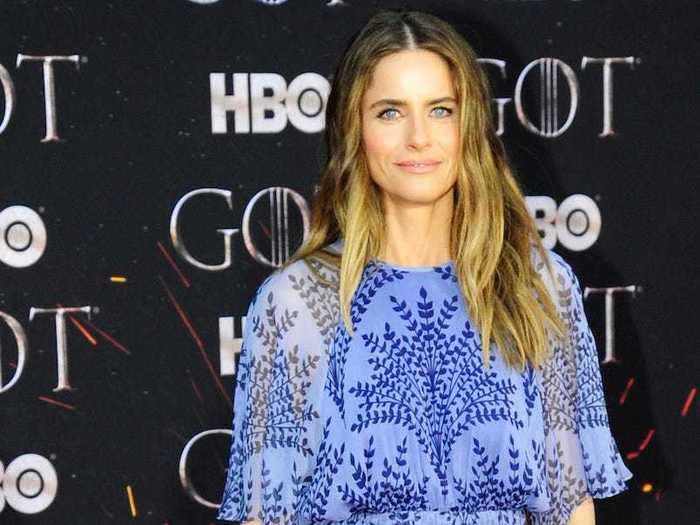
In 2008, actress Amanda Peet spoke with Gotham magazine about her "fairly serious postpartum depression" following the birth of her oldest daughter, Frances.
After having a euphoric pregnancy, she said she expected to feel "fulfilled" after giving birth. Instead, the actress said she felt sleep-deprived and ambivalent about motherhood, according to People magazine.
Adele said talking about her postpartum depression helped.
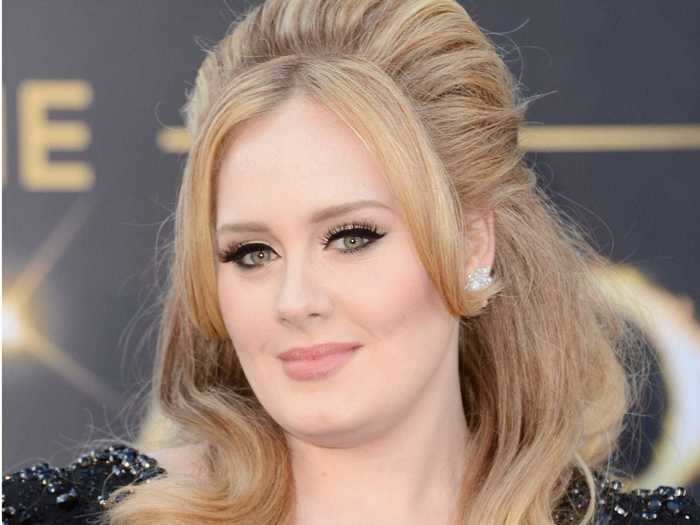
After giving birth to her son, Angelo, in 2012, Adele said she was reluctant to talk to anyone about her symptoms of PPD.
In an interview with Vanity Fair, she explained that it wasn't until she started talking to friends who were also going through it that she started to feel better.
"One day, I said to a friend, 'I f------' hate this, and she burst into tears and said, 'I f------' hate this, too, and it was done. It lifted," she said.
Bryce Dallas Howard said a lot of different resources helped her overcome PPD.
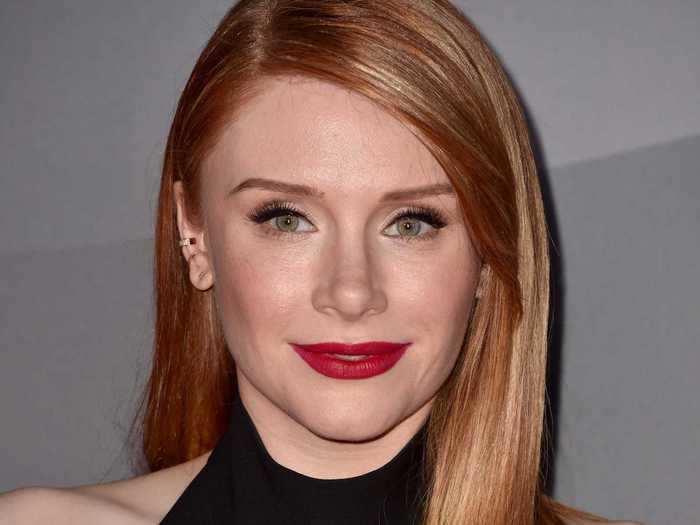
In a 2010 essay for Goop, actress Bryce Dallas Howard detailed her battle with PPD after giving birth to her son, Theo, in 2010.
"It is strange for me to recall what I was like at that time," she wrote. "I seemed to be suffering emotional amnesia. I couldn't genuinely cry, or laugh, or be moved by anything. For the sake of those around me, including my son, I pretended, but when I began showering again in the second week, I let loose in the privacy of the bathroom, water flowing over me as I heaved uncontrollable sobs."
The "Jurassic World" star credits a homeopathic treatment plan suggested by her midwife, as well as her doctor, her friends, and Shields' memoir for helping her overcome her PPD.
Drew Barrymore said she didn't experience PPD with the birth of her first child, but she did with her second.
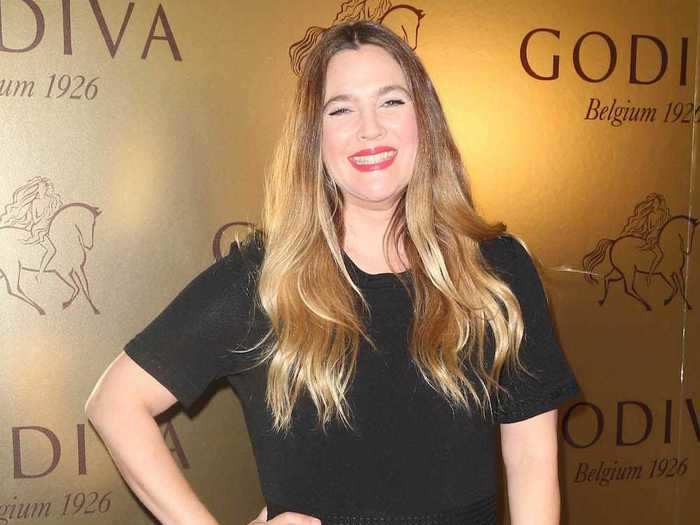
Drew Barrymore, who said she didn't experience PPD after giving birth to her first daughter Olive, said she was surprised when she felt "under the cloud" after the birth of her second daughter, Frankie, in 2014.
The actress and writer told People magazine that her PPD experience lasted only around six months, but it taught her to stay present in the moment.
Brooke Shields said she doesn't want new moms suffering from PPD to feel stigmatized.
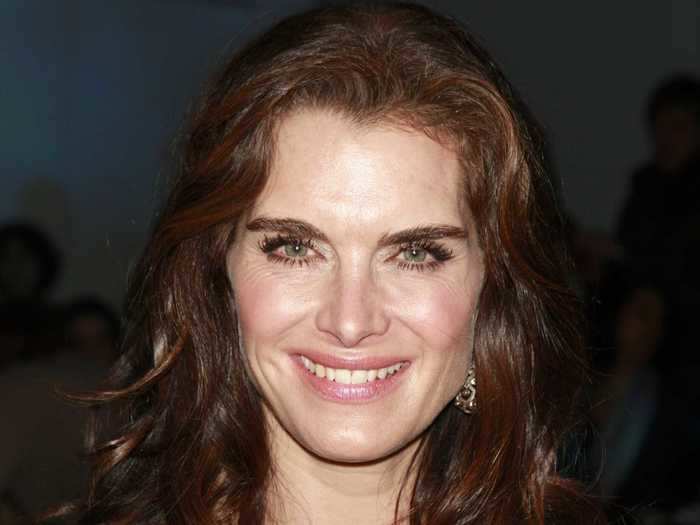
After giving birth to her first daughter, Rowan, in 2003, the model and actress said she experienced PPD.
She detailed her postpartum experience and subsequent treatment using antidepressants and therapy in her book, "Down Came the Rain: My Journey Through Postpartum Depression."
In a 2005 interview with Oprah Winfrey, Shields described the days after giving birth.
"I had no desire to even pretend to care about her. And it absolutely terrified me," she said, adding that she doesn't want new moms suffering from PPD to feel stigmatized.
"If I had been diagnosed with any other disease, I would have run to get help," she told People magazine. "I would have worn it like a badge. I didn't at first – but finally, I did fight. I survived."
Chrissy Teigen said taking antidepressants helped her with PPD.
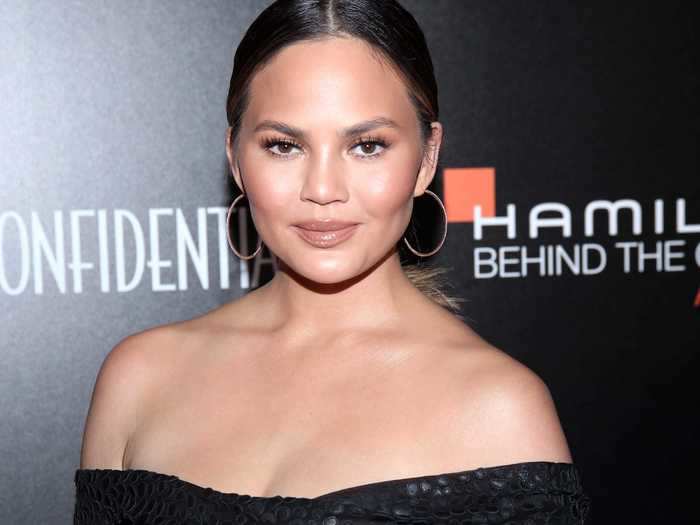
In an emotional essay penned for Glamour in March 2017, the model, cookbook author, and color commentator for "Lip Sync Battle," explained that after giving birth to her daughter, Luna, in April 2016, she developed PPD.
"What basically everyone around me — but me — knew up until December was this: I have postpartum depression," she wrote. "How can I feel this way when everything is so great?"
After being diagnosed with PPD in December of 2016, Teigen began taking antidepressants which she wrote made her feel like "a much different human."
Hayden Panettiere has spoken about seeking treatment for PPD.
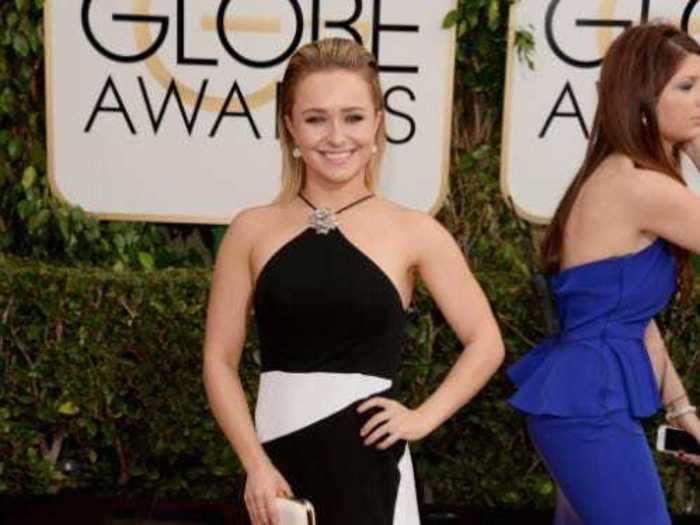
The "Nashville" star, who gave birth to a daughter, Kaya, in December 2014, has openly battled PPD.
She discussed her struggles on "Live! With Kelly and Michael" in September of 2015 telling the hosts, "There's a lot of misunderstanding, and I feel like there's a lot of people out there who think that it's not real, that it's not true, that it's something that's made up in their mind."
"It's something that's completely uncontrollable and it's really painful, and it's really scary, and women need a lot of support," she added.
Panettiere sought treatment for PPD in October 2015, and tweeted in May 2016 that she would be taking time to "reflect holistically on my health and life."
In a January 2017 interview with Lara Spencer on "Good Morning America," she expressed that she was feeling "fabulous" and "great"
Behati Prinsloo encouraged fellow parents to seek out support.
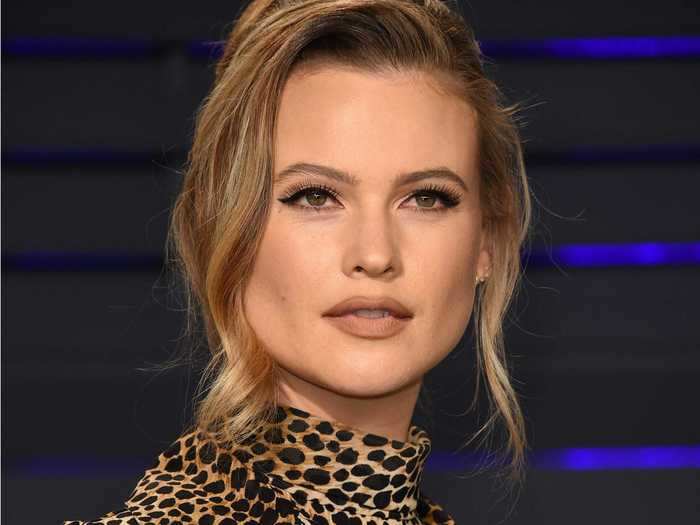
Supermodel and Victoria's Secret Angel Behati Prinsloo has opened up about her experience dealing with postpartum following the birth of her and singer Adam Levine's first child, Dusty Rose.
"I had moments of postpartum after our first baby that I felt like it was coming through. But my husband was so incredibly supportive and always got me out of it," she told "Today" in June 2019.
"I think it's very normal, though, as a young mom and a new mom to feel helpless and to feel overly emotional, you know ... I think I got lucky not to have it to an extreme case, but you can see yourself spiraling," she added.
The mother of two went on to encourage anyone suffering from postpartum, even if their symptoms seem minor, to ask for help and seek support.
Reese Witherspoon said she experienced postpartum after the birth of two of her three children.
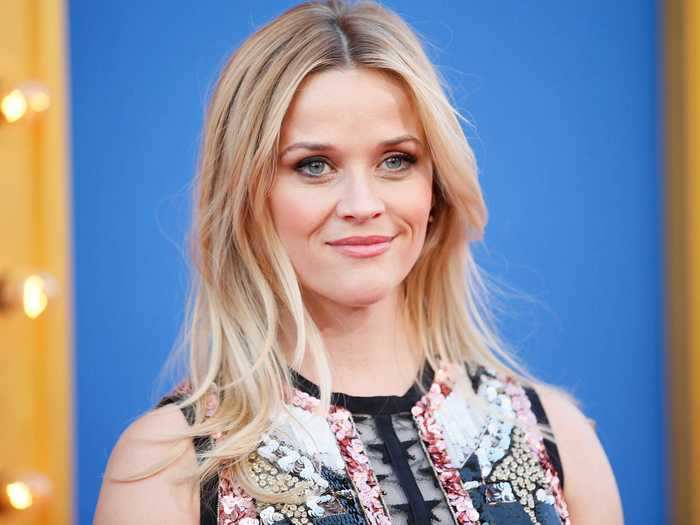
On a 2020 episode of Jameela Jamil's "I Weigh" podcast, Reese Witherspoon shared that she's dealt with multiple cases of postpartum depression.
"I've had three kids. After each child I had a different experience. One kid I had kind of mild postpartum, and one kid I had severe postpartum where I had to take pretty heavy medication because I just wasn't thinking straight at all,"
"And then I had one kid where I had no postpartum at all," she added.
READ MORE ARTICLES ON
Popular Right Now
Popular Keywords
Advertisement